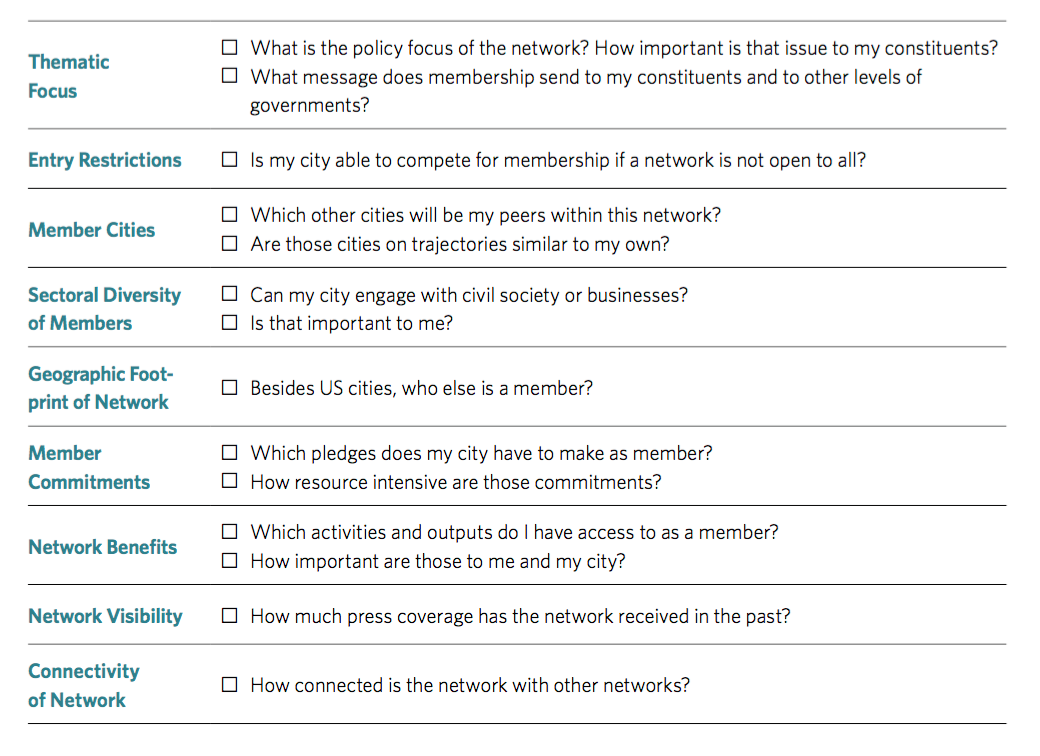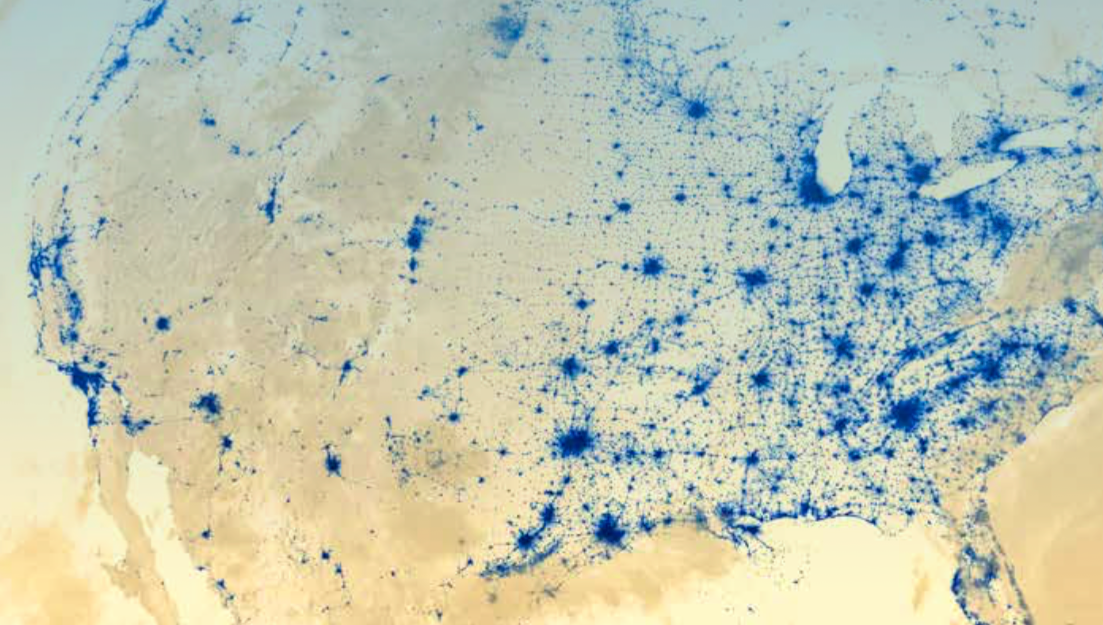City networks have been around for a while but their numbers have grown in recent years. With budget and ideological battles at the federal level, cities and mayors are "increasingly being asked to solve problems that the federal government has not been able to resolve," according to a new report that documented how cities engage with various networks. Houston has done its share when it comes to network participation. The city belongs to a sizable list of policy networks and partnerships, including the Smart Cities Collaborative, Welcoming America's Welcoming Cities program, the Global Cities Initiative and more. While not assessing the efficacy of these networks, the report from Boston University's Initiative on Cities looked at participation in 15 networks across 468 cities, creating network typologies and a map of network connectivity to see which cities were involved in similar networks.
Networks in general proved popular. Focusing on 15 well-known groups, the report found that among cities with 75,000 or more people, more than half were members of at least one of the study's networks. Bigger cities tended to be in more networks, with 44 of the 50 largest cities belonging to at least two of the 15 networks. The 15 selected cover a range of issues but tend to focus on environmental concerns and goals, like reducing greenhouse gas emissions by 80 to 95 percent by 2050.
Several smaller cities stood out as being some of the most prolific network participants. The most active "joiner" cities for both environmental and other policy networks include a couple large cities, like New York City and Los Angeles, but also smaller cities like New Orleans, Austin and Seattle. And the joining mentality carried over from environmental concerns to other policy issues as well. "Most cities either join a lot of both kinds of networks or few of either," the report notes.
But the types of networks varied, particularly when it came to membership requirements. 100 Resilient Cities, for example, has a competitive application process and requires members to develop a plan and commit to specific goals. Other groups have a network-wide target or other participation standards. The report classifies the networks as either "Big Tent" or "High Hurdle," depending on their focus and barriers to entry.
Of the four climate-related networks Houston belongs to, three were classified as Big Tent networks, including Climate Mayors, which was launched as the Mayors National Climate Action Agenda in 2014 by then Houston Mayor Annise Parker along with the mayors of Philadelphia and Los Angeles. Mayor Sylvester Turner was named co-chair of the group in 2017. His appointment came shortly after Turner joined with dozens of other mayors in promising to uphold the Paris climate agreement. "Cities are front and center in the fight against climate change and we have to take action," Turner said in a statement at the time. "We must not let the president's decision today slow our efforts. As the energy capital of the world and the nation's largest municipal purchaser of green power, Houston is leading by example and living proof that large, industrial cities can have a robust economy and also fight climate change."
In his statement, Turner echoed the underlying sentiment of the report; that cities have had to fill critical gaps, with networks being just one of the ways to do that. The top three reasons to join a network, according to surveyed mayors, are "to amplify their message by uniting around a common cause, to signal to local constituents that they share a particular priority, and to exchange best practices or other information."

Source: Boston University, Initiative on Cities.
Mayors who belonged to environmental city networks reported feeling more agency when it came to combating climate change or pushing back against federal policy decisions, according to the report's survey data. But with so many networks available to cities, how should a mayor navigate these? The report offers a checklist but it also mapped clusters of cities that shared a similar list of networks to identify potential peer cities for further collaboration. In the case of Houston, those peer cities included San Antonio, Texas; Long Beach, Calif. and Tallahassee, Fla. as well as Cleveland, Ohio and Columbia, Mo.
The three cities larger than Houston—New York City, Los Angeles and Chicago—were all in the same cluster, along with San Francisco, Austin and Washington, D.C.
Dallas, meanwhile, shared a similar set of networks with Atlanta, Denver and Minneapolis, among others.
"Cities can leverage these peer groups both to enhance the odds of meaningful exchanges," argues the report, "but also see how different network membership trajectories may help cities on the path to becoming more sustainable places."

